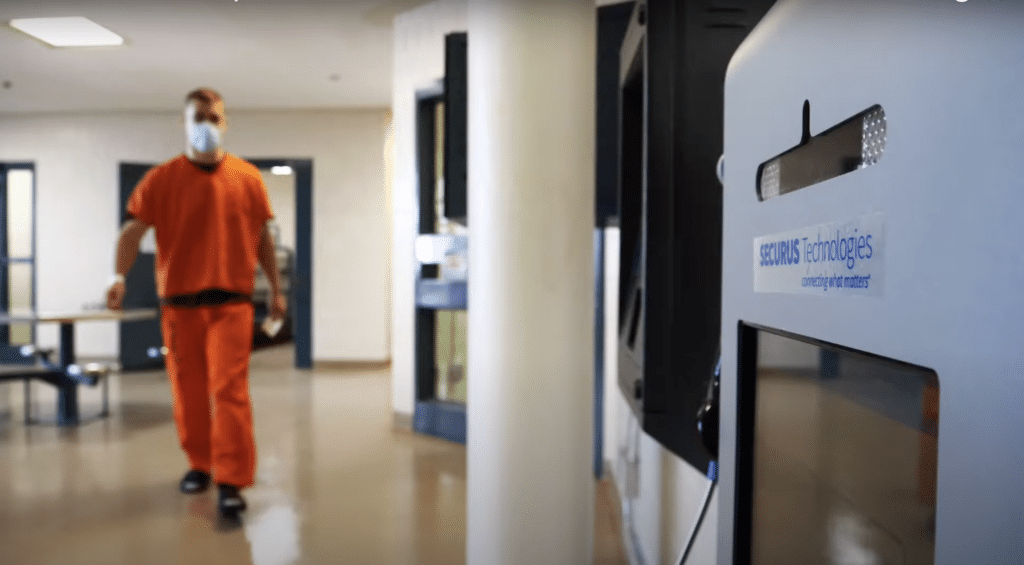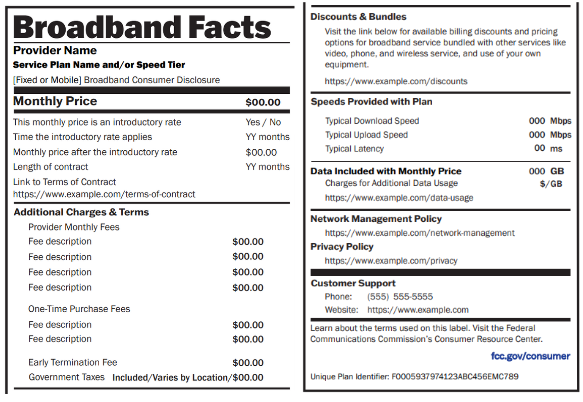FCC’s New Prison Call Rate Caps Facing Court Threats
With rates set to plunge in November, a leading telecom player warns the new limits were unsustainable.
Jericho Casper

WASHINGTON, Oct. 1, 2024 – New federal rules designed to cut the fees that prison inmates pay to make phone calls are facing resistance and a potential court battle.
The nation’s largest prison telecom provider is threatening legal action unless the Federal Communications Commission reconsiders its sweeping reforms to lower the cost of communications for the incarcerated population.
Securus Technologies, which provides communication services to more than 3,400 correctional facilities across the U.S., delivered an ultimatum in a petition to the FCC Thursday: Halt the implementation of the new prison rate caps by Oct. 2 or face legal action in the court of appeals.
In July, the FCC voted to lower the costs of incarcerated people’s communications services, setting rate caps on audio and, for the first time, video call rates for prisons and jails with prices based on facility size.
These rules, set to take effect 60 days after their publication in the Federal Register on Sept. 20, will reduce the cost of a 15-minute phone call from as high as $11.35 in some large jails to as low as $0.90, according to the FCC, offering much needed relief to incarcerated individuals making wages of $0.13 to $1.00 per hour.
The new rules also prohibited companies from kicking a portion of their profits back to prisons and jails in exchange for a contract to be allowed to operate there, “a practice so widespread that in some jurisdictions it’s a legal requirement,” reported Filter, a harm reduction journal. “Once a company is awarded a contract for a state prison or county jail system, it has a monopoly on communications for everyone incarcerated there.”
However, the FCC’s rules have triggered opposition from major industry players like Securus. The company, which has long profited from inmate communications, argued that the new rules violate the Martha Wright-Reed Just and Reasonable Communications Act. This Act gave the FCC expanded authority to establish a plan that ensures “just and reasonable” rates for incarcerated peoples, while ensuring communications service providers were also "fairly compensated."
Securus contends that the FCC's new rate caps were too low to comply with the dual mandate of the law. Securus Technologies has filed several petitions since 2021, including a request for an exemption so it could offer “alternative rate options.”
Securus has faced years of criticism for charging exorbitant rates for phone and video calls, placing financial strain on incarcerated individuals and their families, with rates sometimes reaching $1 per minute or more for phone calls.
The FCC’s new rules aim to alleviate these burdens. The new rates are set on a tiered rate structure at $0.06 per minute for prisons and large jails housing over 1,000 inmates, $0.07 per minute for medium-sized jails with 350 to 999 inmates, $0.09 per minute for smaller jails with 100 to 349 inmates, and $0.12 per minute for very small jails with fewer than 99 inmates.
This sliding scale approach reflects the FCC's recognition that smaller facilities may present higher operational challenges and lower profit margins for service providers compared to larger institutions.
While the new audio rates have been widely welcomed, some critics argue that the FCC’s caps on video calls, capped at $0.11 per minute for large jails and up to $0.25 per minute for very small jails, remain too high.
Louisiana Public Service Commissioner Foster Campbell expressed concern in a message to the FCC on Friday that video call rates still present an opportunity for telecommunications companies and correctional institutions to exploit inmates and their families. "Allowing video rates at, or near, the audio rates you determined unreasonable is opening the door for telecom companies to evade the regulation," Campbell said.









Member discussion